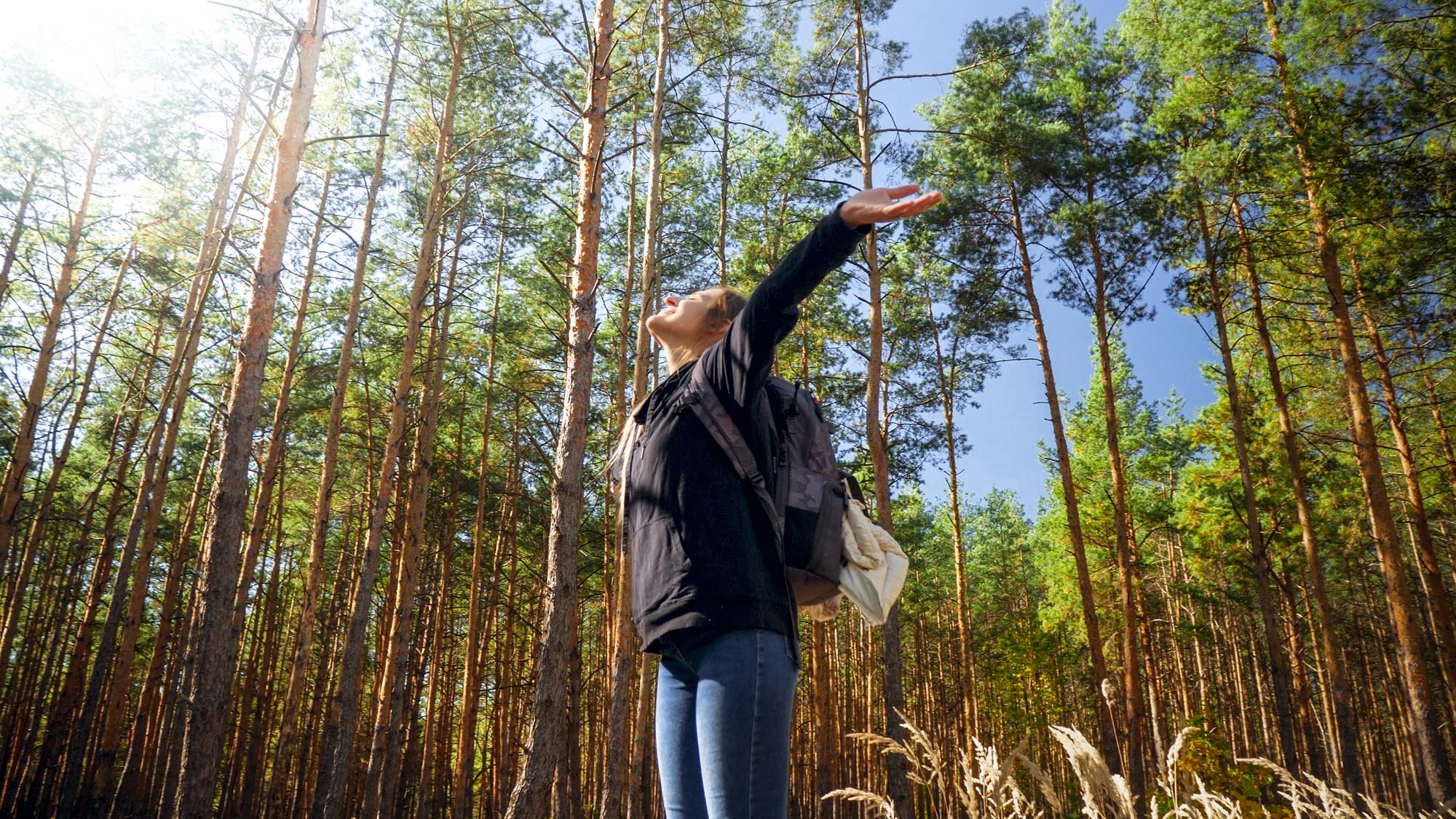In recent years, mental health challenges among teenagers have reached unprecedented levels. Studies show that 1 in 5 adolescents experiences significant mental health issues, creating an urgent need for effective, accessible interventions.
Nature therapy has emerged as a powerful solution to this growing crisis. This holistic approach harnesses the healing power of outdoor environments to support teen mental wellness. By combining traditional therapeutic practices with natural settings, nature therapy offers a refreshing alternative to conventional treatment methods.
The impact of nature therapy on teen mental health is backed by compelling research:
- Reduced anxiety and depression symptoms
- Improved mood and emotional regulation
- Enhanced self-esteem and confidence
- Decreased stress levels
- Better social connections and communication skills
However, it’s essential to remember that these outdoor activities should complement professional help, especially for those dealing with severe mental health issues. If your teen is struggling with depression or experiencing suicidal thoughts, seeking specialized programs like those offered by the Build Bright Care Group can provide the necessary support.
Your teen’s mental well-being can transform through strategic engagement with outdoor activities. We’ve identified five specific activities that demonstrate remarkable success in supporting adolescent mental health. These activities blend the therapeutic benefits of nature with practical, enjoyable experiences that resonate with young people.
Understanding Nature Therapy
Nature therapy, also known as ecotherapy, is an innovative approach to mental health treatment that uses the healing power of nature. This therapeutic practice is largely influenced by Richard Louv’s groundbreaking work on Nature Deficit Disorder, a condition he discussed in his book “Last Child in the Woods.”
Louv’s research uncovers a troubling trend: modern lifestyles have caused a significant separation between young people and the natural world. Nowadays, teenagers spend an average of 7.5 hours each day using electronic devices, while their time spent outdoors has decreased by 50% over the past ten years.
How Nature Deficit Disorder Affects Teens
This disconnection from nature shows up in various ways:
- Increased anxiety and depression symptoms
- Reduced attention spans
- Diminished sensory awareness
- Higher stress levels
- Weakened emotional resilience
How Nature Therapy Can Help
Nature therapy tackles these issues by incorporating natural elements into organized therapeutic experiences. Your teen may participate in:
- Wilderness therapy sessions in local parks
- Garden-based interventions at treatment centers
- Animal-assisted activities in outdoor settings
- Mindful nature walks with therapeutic guidance
At Build Bright Care Group, we’ve seen incredible transformations when teens reconnect with nature through guided therapeutic experiences. The practice combines traditional counseling methods with the healing effects of natural environments, making it a powerful tool for emotional recovery and personal development.
Benefits of Outdoor Activities for Teen Mental Health
Research shows outdoor activities create powerful physiological changes in teens’ bodies. Time spent in nature reduces cortisol levels – the body’s primary stress hormone. This natural stress reduction helps teens manage anxiety and depression more effectively.
The psychological benefits of outdoor engagement are equally significant:
- Improved Mood: Natural sunlight exposure increases serotonin production
- Enhanced Focus: Nature settings activate Attention Restoration Theory principles
- Better Sleep: Outdoor activity helps regulate natural sleep-wake cycles
- Reduced Rumination: Natural environments decrease negative thought patterns
Adventure therapy takes these benefits further through structured outdoor challenges. Teens learn to:
- Navigate physical obstacles
- Make quick decisions
- Trust their abilities
- Build confidence through achievement
These controlled risk-taking experiences in nature create lasting positive changes. Teens develop resilience by facing and overcoming challenges in safe, supported environments. Each successful experience strengthens their self-esteem and problem-solving abilities.
Research indicates teens who participate in regular outdoor activities show:
- Lower rates of anxiety
- Improved emotional regulation
- Stronger stress management skills
- Enhanced social connections
- Greater self-awareness
The combination of physical activity and natural settings creates a unique therapeutic environment that supports healthy adolescent development.
Exploring Alternative Therapies for Teen Mental Wellness
Alternative therapies offer unique pathways to support teen mental health, combining natural elements with therapeutic practices. Equine-assisted therapy stands out as a powerful approach that brings together animal interaction and outdoor experiences.
The Benefits of Equine-Assisted Therapy
Working with horses creates opportunities for emotional growth and healing in young people. Teens learn to:
- Build trust through gentle interactions
- Develop non-verbal communication skills
- Practice emotional regulation
- Gain confidence in handling large animals
- Experience immediate feedback from the horse’s responses
The healing power of equine therapy lies in the horse’s natural ability to mirror human emotions and behaviors. This creates a safe space for teens to explore their feelings without judgment.
A Holistic Approach to Teen Mental Health
A holistic approach to teen mental health integrates multiple treatment modalities:
- Traditional counseling
- Nature-based interventions
- Animal-assisted therapy
- Mind-body practices
- Creative arts therapy
- Movement-based activities
Research shows that combining these different approaches can create more effective treatment outcomes. Each teen responds differently to various therapeutic methods, making personalized treatment plans essential.
Collaboration Between Mental Health Professionals and Equine Specialists
Local mental health centers often partner with equine therapy facilities to provide these specialized services. Licensed mental health professionals work alongside certified equine specialists to ensure safe and therapeutic experiences for teens.
Specialized Programs for Severe Issues
For those dealing with more severe issues like teen depression, a specialized program can be beneficial. Such programs often include residential treatment options which are tailored to meet the unique needs of each teenager. These residential facilities not only address depression but also provide autism treatment and other behavioral issues using a customized curriculum designed for success.
Addressing Anxiety and Panic Attacks
Moreover, if anxiety or panic attacks are part of the mental health struggle, there are specific resources available that focus on anxiety and panic attack treatment. It’s crucial that these treatments are personalized, as each teen responds differently to various therapeutic methods.
Incorporating Nature Therapy in Clinical Settings
Research findings from leading medical journals demonstrate the significant impact of nature therapy in clinical mental health treatment for adolescents. A groundbreaking study published in JAMA Pediatrics revealed that teens who participated in structured outdoor therapy programs showed a 60% reduction in anxiety symptoms compared to traditional indoor therapy alone.
Incorporating nature therapy into clinical settings has shown a range of benefits:
- Reduced depression symptoms: Many clients experience fewer depressive symptoms after spending intentional time in nature-based interventions.
- Improved attention span: Clients often show better focus during therapeutic sessions that take place outdoors.
- Enhanced emotional regulation: Nature therapy can help individuals build healthier stress management and coping skills.
- Better treatment adherence: Programs that include outdoor or nature-based elements frequently see higher rates of participation and completion.
Clinical applications of nature therapy range from structured wilderness programs to simple outdoor counseling sessions. Mental health professionals have successfully integrated these approaches into treatment plans for various conditions, including anxiety disorders, depression, ADHD, trauma recovery, and behavioral challenges.
For instance, when dealing with autism, nature therapy can be incorporated into residential treatment plans. Such evidence-based treatments not only aid in managing the condition but also help children reach their full potential.
Recent studies also point to the neurobiological benefits of nature exposure, with measurable changes in brain activity patterns and stress hormone levels. This growing body of evidence supports the integration of nature-based interventions into standardized mental health protocols for adolescents. Furthermore, nature therapy’s potential extends beyond immediate therapeutic effects, offering long-term benefits that can transform the landscape of mental health treatment.
Outdoor Activities That Boost Teen Mental Health
Research shows specific outdoor activities can significantly improve teen mental health. Let’s explore these transformative activities, starting with nature hikes – a powerful tool for mental wellness.
1. Nature Hikes
Nature hikes offer a unique combination of physical activity and mental restoration. When teens step onto a hiking trail, they experience:
- Mindful Movement: Walking in nature encourages present-moment awareness, reducing anxiety and negative thought patterns
- Natural Stress Relief: The rhythmic motion of hiking helps release endorphins while lowering cortisol levels
- Sensory Engagement: Natural environments stimulate all senses – from the crunch of leaves underfoot to the scent of pine needles
Finding the Right Trail
Selecting appropriate hiking trails for teens requires careful consideration of several factors:
- Difficulty LevelStart with shorter, well-marked trails (1-3 miles)
- Choose paths with minimal elevation gain
- Look for trails rated “easy” or “moderate”
- Safety ConsiderationsPick popular, well-maintained trails
- Ensure cellular service availability
- Check trail conditions and weather forecasts
- Bring essential supplies (water, snacks, first-aid kit)
Local Trail Resources
Here are some resources to help you find local hiking trails:
- Download hiking apps like AllTrails or Hiking Project
- Visit state park websites for trail maps and difficulty ratings
- Connect with local hiking groups that welcome teens
- Check community centers for guided hiking programs
Pro Tips for Teen Hikers
Here are some tips to make your hiking experience more enjoyable:
- Start early in the day to avoid peak heat
- Hike with a buddy or small group
- Wear appropriate footwear and clothing
- Take regular water breaks
- Pack light but essential items
These hiking experiences create opportunities for teens to disconnect from digital devices, engage with their natural surroundings, and develop a deeper appreciation for outdoor activities.
2. Gardening
Gardening offers teens a unique opportunity to nurture life and witness growth firsthand. This hands-on activity creates a deep connection with nature while teaching valuable life lessons about patience, responsibility, and care.
You can start your teen’s gardening journey with these beginner-friendly projects:
- Indoor Herb Garden: Create a small windowsill garden with basil, mint, or rosemary
- Succulent Collection: Low-maintenance plants perfect for busy schedules
- Vegetable Container Garden: Grow tomatoes, peppers, or lettuce in portable containers
- Butterfly Garden: Plant flowers that attract butterflies and support local ecosystems
Community gardening programs provide additional benefits through social interaction and shared learning experiences. Local organizations often welcome teen volunteers for:
- Park beautification projects
- Community garden maintenance
- School garden programs
- Neighborhood clean-up initiatives
The act of tending to plants helps reduce stress levels and anxiety while boosting self-esteem. Research shows that gardening activities can lower cortisol levels and improve mood within just 30 minutes of engagement.
3. Outdoor Sports
Team sports played in natural environments offer great opportunities for improving the mental well-being of teenagers. Engaging in outdoor sports not only involves physical activity but also encourages social interaction, allowing teens to form meaningful connections while staying fit.
Key Social Benefits:
- Building trust through team dynamics
- Developing leadership skills
- Learning effective communication
- Creating lasting friendships
- Practicing conflict resolution
Popular outdoor sports for teens include soccer, basketball, ultimate frisbee, and beach volleyball. These activities promote regular physical movement and cultivate a sense of belonging and community.
Tips for Organizing Outdoor Sports:
- Start a weekly neighborhood sports meetup
- Join local recreational leagues
- Create mixed-skill level teams to keep games inclusive
- Rotate positions to help everyone learn different roles
- Set up regular practice times at local parks
Research indicates that teenagers who engage in outdoor team sports experience lower levels of anxiety and depression. The combination of physical exercise, social interaction, and exposure to nature creates an optimal setting for supporting mental health.
4. Adventure Challenges
Adventure challenges push teens beyond their comfort zones through structured outdoor activities that build confidence and resilience. These challenges create opportunities for personal growth while fostering essential life skills like problem-solving and risk assessment.
Popular adventure activities include:
- Rock Climbing: Builds trust, focus, and physical strength while teaching teens to overcome fears
- Ropes Courses: Develops teamwork and communication skills through low and high elements
- Wilderness Navigation: Enhances decision-making abilities and self-reliance
- Kayaking: Promotes mindfulness and connection with nature through water-based adventures
Many reputable organizations offer specialized teen programs with certified instructors who understand adolescent development. These programs incorporate safety protocols and progressive challenge levels, allowing participants to build skills gradually.
You can find adventure programs through:
- Local outdoor recreation centers
- Youth development organizations
- School outdoor education departments
- Certified wilderness therapy providers
When selecting an adventure program, look for organizations that emphasize both physical safety and emotional support, creating an environment where teens feel secure exploring their capabilities.
5. Community Science Projects
Community science projects offer teens a unique opportunity to contribute meaningfully to environmental research while nurturing their mental well-being. These hands-on experiences create a powerful sense of purpose and agency in young participants.
You can engage your teen in local biodiversity monitoring programs where they’ll document native species through photography and data collection. Popular initiatives include:
- Bird counting projects – Recording bird populations and migration patterns
- Water quality testing – Analyzing local streams and lakes
- Plant identification – Cataloging native flora in your area
- Weather tracking – Contributing to climate research through observation
Many organizations provide structured programs specifically designed for young scientists. The National Geographic Society and iNaturalist offer teen-friendly platforms to submit observations and connect with other young naturalists.
These projects combine the therapeutic benefits of outdoor activity with real scientific impact. Your teen will develop valuable research skills while experiencing reduced anxiety and increased self-confidence through their contributions to environmental conservation.
Local nature centers and environmental organizations frequently coordinate community science initiatives. Contact nearby facilities to discover current projects seeking teen participants.
Conclusion
Nature’s therapeutic power offers a transformative path for teen mental wellness. The five outdoor activities we’ve explored — from hiking trails to community science projects — create meaningful opportunities for adolescents to reconnect with the natural world through nature therapy, building resilience and emotional strength along the way.
Starting small can make a big impact. A 15-minute walk in a local park or tending to a windowsill herb garden are simple forms of nature therapy that can spark positive changes in your teen’s mental well-being. These activities become even more powerful when shared as family experiences, creating spaces for open communication and stronger bonds.
Your role in supporting your teen’s outdoor engagement matters deeply. Here’s how you can help:
- Research local hiking trails and nature spots suitable for beginners
- Sign up together for community garden initiatives
- Join outdoor sports leagues that match your teen’s interests
- Look into adventure programs designed specifically for adolescents
- Connect with environmental organizations offering youth programs
At Build Bright Care Group, we understand that each teenager’s mental health journey is unique. Our specialized team integrates holistic approaches with evidence-based treatments, providing comprehensive support for adolescents ages 12-17. We’re here to guide both you and your teen toward healing through the natural world’s restorative embrace.
Ready to explore how nature therapy can support your teen’s mental wellness? Contact Build Bright Care Group to learn more about our holistic treatment approaches.












